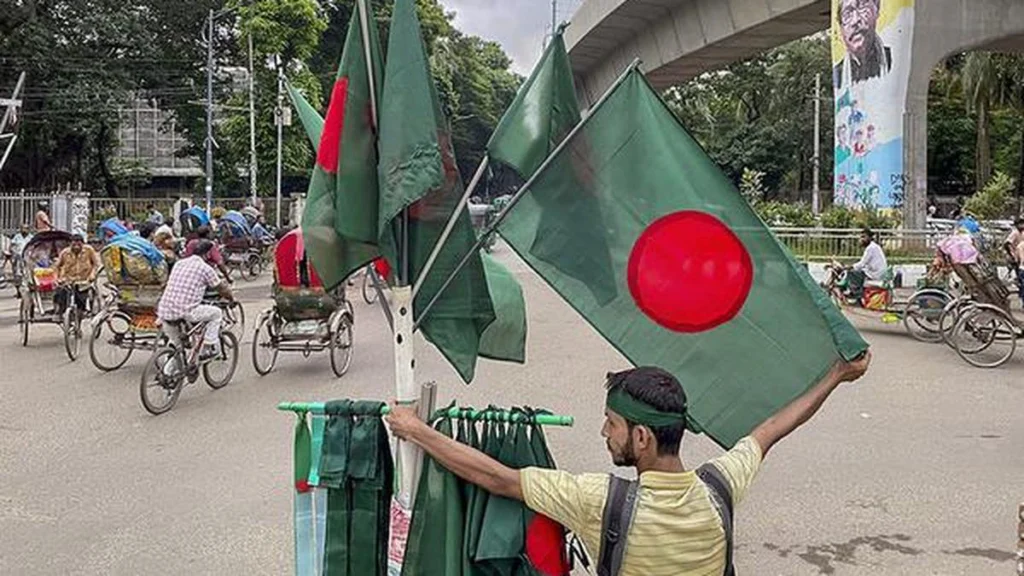Bangladesh’s ex-election commission chief arrested for ‘manipulating polls’ during his tenure

Bangladesh’s Ex-Election Commission Chief Arrested for Alleged Poll Manipulation
Bangladesh’s former chief election commissioner, K.M. Nurul Huda, recently faced arrest over accusations of manipulating elections during his tenure. Huda, who served as the head of the Election Commission from 2017 to 2022, oversaw key elections in 2014, 2018, and 2024. His arrest has reignited conversations about the integrity of Bangladesh’s election process and the accountability of its political figures.
The Allegations Against K.M. Nurul Huda
K.M. Nurul Huda’s arrest stems from serious allegations that he allowed political manipulation during the elections under his watch. Critics have long accused Huda of failing to ensure fair and transparent elections. The 2014 election, under his leadership, was especially controversial, with claims of voter suppression and rigging. The 2018 election also raised similar concerns, as many believed it lacked legitimacy.
Despite these accusations, Huda’s arrest brings these claims back into public view. He has now become the center of a national conversation about the fairness of elections and the integrity of Bangladesh’s democratic processes.
The Arrest and Mob Attack
On the day of his arrest, a mob attacked K.M. Nurul Huda outside his residence in Uttara, Dhaka. The assault was likely a reflection of the public’s anger over the perceived manipulation of past elections. While the details of the assault remain unclear, it highlighted the intense political frustration surrounding the case.
The mob’s attack on Huda raises important questions about the safety of public figures and the role of violence in political discourse. While the anger was understandable to many, it’s crucial to emphasize the importance of peaceful dialogue and respect for the rule of law, even during politically charged moments.
The Political Context
The timing of Huda’s arrest speaks volumes about the political tension in Bangladesh. Opposition parties have long claimed that the ruling Awami League government manipulated the electoral system to retain power. They accuse the government of using its influence to ensure favorable outcomes during elections.
The 2014 and 2018 elections were particularly contentious, with widespread accusations of fraud. In 2014, opposition parties refused to participate, claiming the process had been rigged. Despite the government’s assurances of a fair election, the public’s perception of legitimacy remains deeply divided.
Some view Huda’s arrest as the government’s attempt to show accountability, but others see it as a diversion from more significant political issues. They argue that while Huda’s actions may have been questionable, they were likely influenced by the broader political environment, making it difficult to isolate him as the sole cause of election manipulation.
Public Reaction and Debate
Huda’s arrest has sparked a widespread debate over the role of election commissioners and the broader political system. Supporters of the arrest argue that the country must hold those accountable who jeopardize the integrity of its democratic process. They believe that Huda’s actions, if true, must be punished to restore trust in the election system.
On the other hand, critics argue that the arrest is politically motivated. They assert that Huda’s role in election manipulation might be exaggerated, and the real issue lies with the political system as a whole. Many believe that the political forces behind the manipulation have yet to face accountability.
The mob attack outside Huda’s residence also brings attention to the dangerous environment surrounding political figures in Bangladesh. While some may sympathize with the public’s anger, the attack raises concerns about the safety of public officials and the increasing role of violence in political protests.
The Role of the Election Commission
The Bangladesh Election Commission holds a critical responsibility in ensuring that elections are free and fair. However, the Commission, under Huda’s leadership, has faced criticism for not acting impartially and allowing political influence to distort the electoral process.
Huda’s tenure as chief election commissioner was marked by widespread criticism over his inability to address allegations of fraud and manipulation. The Election Commission’s failure to respond to these accusations has eroded public trust in its ability to manage elections effectively.
The arrest of Huda raises questions about the independence and accountability of the Election Commission. Many Bangladeshis are calling for reforms to ensure that future election commissioners can act without political interference. These reforms are necessary to rebuild faith in the country’s election system and guarantee free and fair elections for all citizens.
Moving Forward: Electoral Reform in Bangladesh
The case against K.M. Nurul Huda highlights the need for comprehensive electoral reforms in Bangladesh. While his arrest may be an important first step, many believe that addressing the broader issues of election manipulation requires systemic changes.
For Bangladesh to regain public confidence in its electoral process, the government must ensure transparency, independence, and accountability within the Election Commission. Reformers argue that a truly independent electoral body is essential for preventing future manipulation and ensuring that elections reflect the will of the people.
The arrest of Huda serves as a reminder that the country’s election system requires urgent attention. However, the focus must shift toward reforming the system, not just holding individuals accountable. True electoral reform will require addressing the political pressures that have historically influenced election outcomes and ensuring that future commissioners have the autonomy to carry out their duties without fear or favor.
Conclusion
K.M. Nurul Huda’s arrest has opened a crucial discussion about the integrity of Bangladesh’s election process. Whether the arrest is politically motivated or a genuine effort to address electoral misconduct, it underscores the need for reform. The case has sparked both hope and skepticism about the future of Bangladesh’s democracy.
Moving forward, it’s clear that the country needs stronger mechanisms to ensure fair and transparent elections. This will require reforming the Election Commission, empowering it to act independently, and addressing the deeper political issues that have compromised the electoral process in the past. Until these reforms are implemented, questions about the legitimacy of future elections will likely continue to linger.






